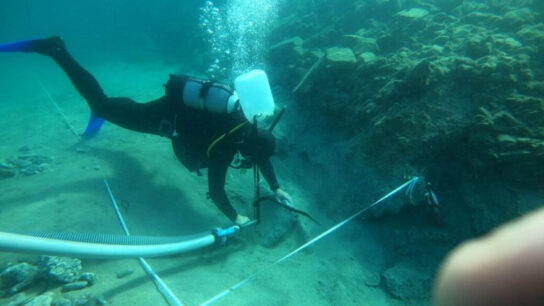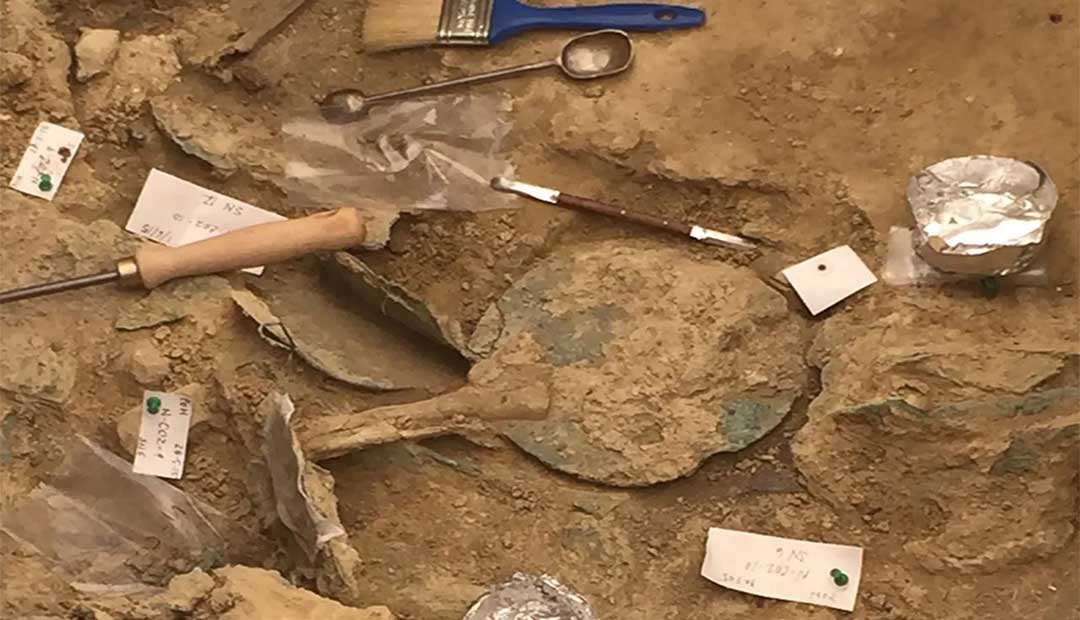How the Ancient Greeks Proved Earth was Round Over 2,000 Years Ago
Long before NASA was sending satellites up into space, the ancient Greeks developed a way to determine the world was spherical over 2000 years ago.
Despite it being obvious that the world has a round spherical shape, ‘flat-earthers’ will live and die by their convictions under the belief Planet Earth is well and truly felt.
While it may seem futile to engage in such debates if you do happen to be drawn into a discussion that makes you question your own logic/common sense just remember – the Greeks proved the Earth was around 2000 years ago.
And they did it without leaving the comfort of their own home.
By the mid-20th century, we discovered the Earth’s circumference was exactly 40,030 km but over 2000 years earlier in ancient Greece, a mathematician by the name of Eratosthenes arrived at the same figure and all he had on him was a stick.

As well as being a mathematical savant Eratosthenes was head of the library at Alexandria – the capital of the Greek empire, he came to upon his discovery when he found out the city of Syene, a neighbouring metropolitan to the south, cast no vertical shadows during noon on the summer solstice.
This was because the sun was directly overhead, at its highest point so to speak. Eratosthenes wanted to find out if this was the same for Alexandria as well, so on June 21, he planted a stick into the ground and waited to see if a shadow would be cast at noon. It happened to show one shadow, which measured at seven degrees.
By this logic, if rays from the sun are coming at the same angle at the same time of the day, with a stick showing a shadow in Alexandria but not in Syene it means the Earth is curved. It’s something which Eratosthenes, and later his contemporaries, already knew.
The concept of a ‘spherical Earth’ was theorized by Greek philosopher Pythagoras around 500 BC and later validated by the great philosopher Aristotle a few centuries later.
So this is where the hardcore maths comes into play, if the Earth was round it meant Eratosthenes could use his discovery to determine the ‘circumference of the entire planet’.
Because the difference in shadow length between Alexandria and Syene is seven degrees it means the two cities are seven degrees apart on Earth’s 360-degree surface. To confirm this Eratosthenes hired a man to walk the distance between Alexandria and Syene, he later learned ‘they were 5,000 stadia apart’ from each other, which equates to 800 kilometres
Eratosthenes could use simple measurements to discover Earth’s circumference – which is ‘7.2 degrees is 1/50 of 360 degrees’ according to The Independent. If you multiply 800 by 50 you get 40,000 kilometres.
So without any fancy technology or huge government funding, a man from Ancient Greece discovered the circumference of our little green planet. All he required was his brains and a stick.
Would you like to support the mission of Greece High Definition? Please consider donating to our site. It’s hard to rely 100% on ads, and your contributions will help us continue providing the best free cultural, Tourism and educational materials to learners everywhere.




